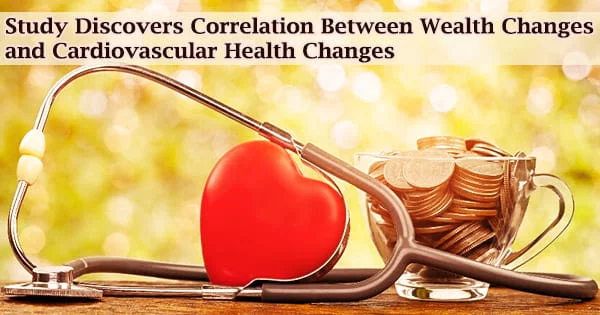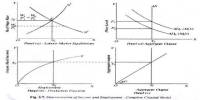Researchers at Brigham and Women’s Hospital have recently investigated the relationships between long-term cardiovascular health and income mobility. The transdisciplinary study used economics methods to examine how wealth has changed throughout time.
According to the team’s findings, poor wealth mobility is linked to a higher risk of cardiovascular events, whereas good wealth shifts are linked to a lower risk of cardiovascular events. JAMA Cardiology has published their findings.
“Low wealth is a risk factor that can dynamically change over a person’s life and can influence a person’s cardiovascular health status,” said Muthiah Vaduganathan, MD, MPH from the Brigham’s Division of Cardiovascular Medicine. “So, it’s a window of opportunity we have for an at-risk population. Buffering large changes in wealth should be an important focus for health policy moving ahead.”
Data from the RAND Health and Retirement Investigation were utilized in the retrospective study (HRS). While most studies rarely classify wealth data, the HRS uniquely collects detailed information about both housing and non-housing wealth across multiple interviews, including information about primary residences, mortgages, home loans, and more. Non-housing wealth includes vehicles, businesses, stocks, mutual funds, checking and savings accounts, and more.
5,579 adults aged 50 or older who had no history of cardiovascular disease were included in the study. The HRS study team gathered information from individuals between January 1992 and December 2016 by interviewing them about any new diagnosis they had received about their general health. For more information regarding deceased participants, the National Death Index was consulted as well as the next of kin.
“Income and wealth, while perhaps informally used interchangeably, actually provide different and complementary perspectives,” said Sara Machado, PhD, an economist at the Department of Health Policy at the London School of Economics.
“Income reflects money received on a regular basis, while wealth is more holistic, encompassing both assets and debts. Could paying off one’s debt with a large relative wealth increase be important in promoting cardiovascular health, even without changes in income?”
Low wealth is a risk factor that can dynamically change over a person’s life and can influence a person’s cardiovascular health status. So, it’s a window of opportunity we have for an at-risk population. Buffering large changes in wealth should be an important focus for health policy moving ahead.
Muthiah Vaduganathan
For the purposes of this study, at least one quintile, and downward wealth mobility as a fall in wealth defined as a rise in wealth upward wealth mobility by at least one quintile in comparison to peers their own age.
Participants were categorized as having stable wealth if they remained in the same wealth quintile between interviews. Overall, a rise in wealth was linked to cardiovascular disease prevention, while a decline in wealth was linked to cardiovascular risk.
“Decreases in wealth are associated with more stress, fewer healthy behaviors, and less leisure time, all of which are associated with poorer cardiovascular health,” said Andrew Sumarsono, MD from University of Texas Southwestern’s Division of Hospital Medicine. “It is possible that the inverse is true and may help to explain our study’s findings.”
All interviews and reports of new diagnoses were self-reported by the participants, which has limitations. Additionally, a variety of environmental and sociodemographic factors as well as other factors play a role in overall cardiovascular health.
Some of these variables weren’t gathered by the HRS, hence they weren’t taken into account in the study. The research team envisions using its findings to guide future medical literature and health policy.
“Wealth and health are so closely integrated that we can no longer consider them apart,” said Vaduganathan. “In future investigations, we need to make dedicated efforts to routinely measure wealth and consider it a key determinant of cardiovascular health.”
HRS is sponsored by the National Institute on Aging. This secondary analysis was unfunded.
















